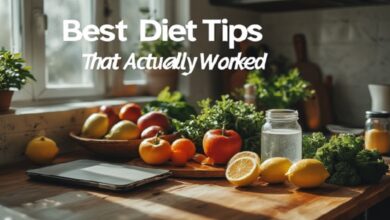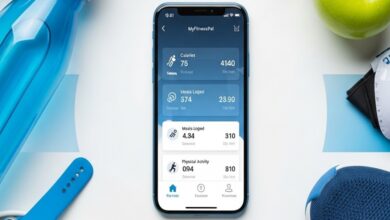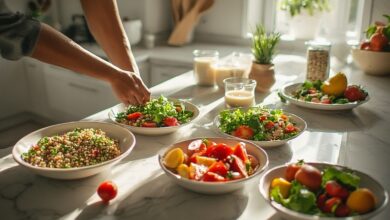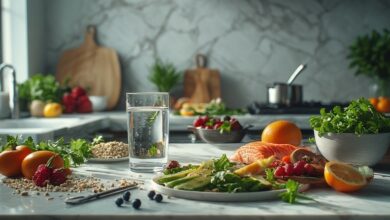Eat Wise, Live Strong: Modern Diet Tips That Truly Work
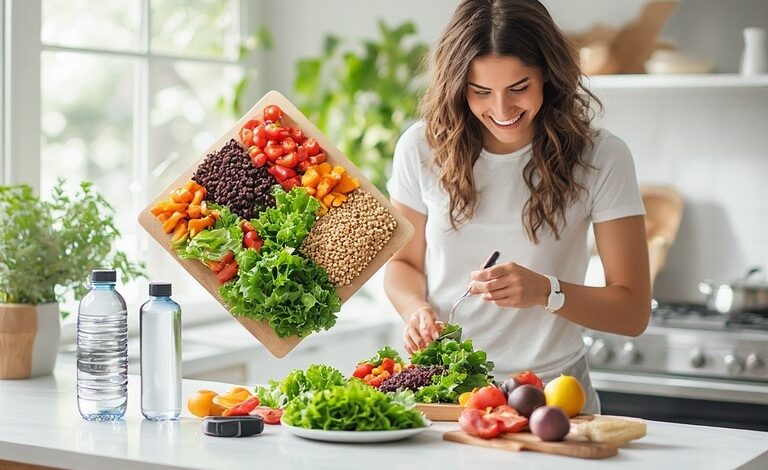
Healthy eating has always been a hot topic, but in 2025, the focus has shifted from quick fixes to sustainable lifestyle choices. Gone are the days of extreme diets that leave you tired, hungry, and frustrated. Instead, modern diet tips are practical, flexible, and tailored to real life. Let’s explore how traditional diet advice compares to today’s smarter strategies that truly help you eat wise and live strong.
🍞 Carbs as the Enemy vs. Smart Carbohydrate Choices
Old diet culture painted carbs as the ultimate villain. From low-carb to no-carb fads, people believed cutting bread, rice, and pasta was the only way to lose weight.
✨ Modern approach: Carbs are back—but smarter. Diets now emphasize complex carbs like quinoa, brown rice, oats, and sweet potatoes. Paired with fiber and protein, these provide energy without sugar crashes. It’s not about cutting carbs, but about choosing the right kind.
🔍 Comparison:
- Old way: Carbs = weight gain.
- New way: Carbs = energy fuel when chosen wisely.
🥩 High Protein Obsession vs. Balanced Nutrition
For years, the trend was simple: eat more protein. From shakes to protein bars, people overcompensated, often neglecting other nutrients.
✨ Modern approach: Instead of overloading on protein, diets now promote balanced plates with a mix of protein, healthy fats, fiber, and micronutrients. Plant-based proteins like lentils, chickpeas, and tempeh have also gained popularity for their sustainability and health benefits.
🔍 Comparison:
- Old way: Protein overload at the expense of variety.
- New way: Balanced nutrition that nourishes every system in the body.
🥬 Restrictive Eating vs. Flexible Dieting
Older diet plans thrived on strict restrictions—no sugar, no fat, or even skipping entire food groups. This often led to burnout and binge eating.
✨ Modern approach: Flexible dieting and the 80/20 rule dominate today’s scene. Eat clean and nutrient-dense foods 80% of the time, and enjoy your favorite treats guilt-free for the other 20%. This balance makes healthy eating sustainable in the long run.
🔍 Comparison:
- Old way: Restriction leading to cravings.
- New way: Flexibility that encourages consistency and balance.
🧃 Juice Cleanses vs. Functional Beverages
A decade ago, juice cleanses and detox teas were marketed as weight-loss miracles. While they offered quick results, they often lacked nutrients and energy.
✨ Modern approach: Functional drinks like kombucha, electrolyte waters, and adaptogenic teas have replaced them. These beverages support gut health, hydration, and stress management—without starving the body.
🔍 Comparison:
- Old way: Short-term cleanses with little benefit.
- New way: Functional drinks that nourish while refreshing.
⏰ Strict Meal Timing vs. Intuitive Eating
Traditional dieting often insisted on eating at fixed times—three meals a day, or strict intermittent fasting windows. While structured, it wasn’t always realistic.
✨ Modern approach: Intuitive eating is trending. Instead of eating by the clock, people are learning to listen to hunger cues, eat when the body needs fuel, and stop when satisfied. This creates a healthier relationship with food.
🔍 Comparison:
- Old way: Eating by rules, not needs.
- New way: Mindful eating guided by the body.
📱 Manual Tracking vs. AI-Powered Guidance
Earlier, tracking calories and meals meant notebooks or basic apps that required lots of manual input.
✨ Modern approach: Smart nutrition apps now integrate with wearables, using AI to give meal suggestions, track hydration, and even analyze nutrient deficiencies. This removes the guesswork and makes dieting highly personalized.
🔍 Comparison:
- Old way: Manual logging with plenty of errors.
- New way: Smart AI-driven nutrition planning.
🧘♀️ Physical Health Only vs. Mind-Body Connection
Old dieting advice focused only on the physical—weight loss, calorie burn, and body image. Mental well-being was rarely part of the conversation.
✨ Modern approach: Diet tips today highlight the mind-body connection. Anti-stress foods like dark chocolate, omega-3-rich salmon, and adaptogens are integrated into meal plans. The goal is not just to look strong, but to feel strong mentally and emotionally too.
🔍 Comparison:
- Old way: Dieting only for appearance.
- New way: Dieting for overall health and resilience.
🔮 Final Thoughts: Eating Smart in 2025
Healthy eating today is no longer about extremes. It’s about balance, personalization, and sustainability. Whether it’s intuitive eating, smart carb choices, or functional foods, modern diet tips help people live healthier without feeling restricted.
The future of dieting is not about following rigid rules—it’s about building habits that fit your lifestyle, support your body, and keep you strong.
✅ Verdict:
Traditional diets focused on short-term fixes. Modern diet strategies emphasize long-term strength, flexibility, and overall wellness—helping you eat wise, live strong, and thrive every day.

